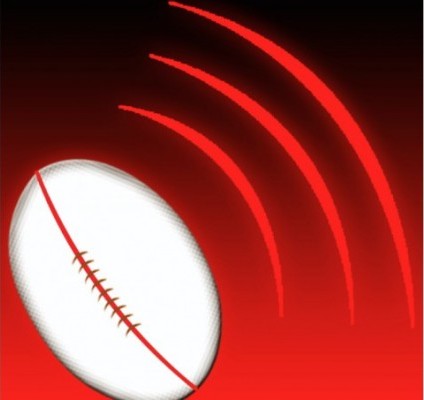USA Women 4th at RWC 7s Despite Predictable, Dull Game Plan: Analysis
USA Women 4th at RWC 7s Despite Predictable, Dull Game Plan: Analysis
The USA women's 7s team finished 4th at the Rugby World Cup 7s, certainly a finish higher than what could have happened, but also perhaps lower than was their goal.
Stacked with some exceptional talent, the Eagles couldn't quite open up the game the way they needed to in the final rounds, Against Canada, eventual champions Australia, and France in the 3rd-4th game, they manged just four tries.
With Jaz Gray burning defenses on the outside, and Ilona Maher thundering through tacklers on the inside, and with smart playmakers like Nicole Heavirland they had the pieces for a world championship run. But tactically the Eagles were lateral, unimaginative, and ... well ... dull.
Pass it to the left, suck in some bodies, send it out to the right, and hope someone finds a gap.
That worked against Poland fairly easily in the Round of 16, but after that it hardly worked at all. Their quarterfinal game against Canada was most notably marked by the USA's superb recycling and continuity. Lord knows they needed it as there was no variety to the attack—no misdirection, no sidestepping from a runner, no vertical pop-and-go. Canada made four times as many tackles as did the USA because the Eagles had the ball for massive amounts of time. All they could muster in the first half was a hard slog to get Gray over the line‚Òauren Doyle ran into two tacklers and tried to offload off the deck. The ball didn't really rise but it did bounce and that was enough for Gray.
The same sort of pass off the deck from Doyle punished her the next time as it was loose and Canada reclaimed it to run in from long range, taking the conversion for a 7-5 lead. After dominating possession for about 10 minutes the USA was losing. But some overpursuit by the Canada defense left a channel just on the inside of the edge for Naya Tapper to exploit and win the game.
Breath of relief, and on to Australia and, after that, France.
We're not going to go into details about these games. Suffice to say Australia and France looked under very little threat to give up tries. Australia's ball movement was excellent, which is why they won the tournament. France was just physically stronger than most of the USA players. You found yourself begging for someone to put in a sidestep (yes, the field was chewed up, but other teams managed it), to look for support on a break, to take charge. Coming on for the tiny sliver of time afforded her, Sam Sullivan did that.
We apply very little fault to the players in this. While we think there should be some selection changes in the squad—how often does one player have to miss tackles before she's sidelined? How many times does a player have to run away from support and give up a holding-on penalty before she is replaced?—this is about how the team is told to prepare. No one is really looking for support when they go on a run, and why would they? No one's there. And it's not that the support is absent because they aren't trying or don't want to be there; it's because the attack pattern is designed to leave runners alone. Set up the play and break someone through and she'll go score a try ... so you don't need a Plan B.
Even running short, flat passes in the middle was ill-worked—that's a play for Maher or Cheta Emba, or for Kristi Kirshe, not for, say Heavile or Alena Olsen—yet the USA approach seemed to take no notice of who was making that crash. (By the way, how Kirshe was only used as a late-game sub is beyond us ... she has been a consistent ground-gainer and momentum shifter who can bust through tackles for some years. She deserved better.)
And one more thing—quick ball is important. Passing the ball quickly from the ruck is hugely important because every delay gives the defense an extra step. Sure you can't whip the ball to the first receiver directly off the deck every time ... but how about sometimes? How about once? And sure you can't send a long pass without a little trigger hitch every time, but how about sometimes? Every. Single. USA. Pass. From a ruck involved a little hop and a little hitchy trigger move before the pass was accomplished. For a smart, quick defense that's two steps, or five or six meters, closer they can get. Again—who is responsible for seeing and correcting that? It was so consistent it looked taught, and that thought makes us sad.
Against France the USA needed more power and needed to recognize that support had to be at the breakdown quickly. But they were, instead, outmatched.
USA Head Coach Emilie Bydwell has been an astounding servant to the game in the United States, always learning and growing as a player and a coach. But this is a team that is bereft of tactical nuance, a team that plays as if you only have to pass back and forth until someone makes a mistake and you run through and score. And despite having players who are as good as any on the world stage, this team, 4th by the skin of their teeth and thanks to a Naya Tapper breakaway, fell flat in the medal games because they weren't tactically equipped to win.
“We went out there and tried to implement some of the things that we have been working on over the summer and some of the learnings we have learned from the past few games," Tapper said after the loss to Australia. "We didn’t do that as much as we wanted to do so we have some things to take away from that match and into the next one.”
No, no you won't, and it's classy of Tapper to take that as a players' responsibility. We at GRR don't think that's who should be giving the mea culpa.











